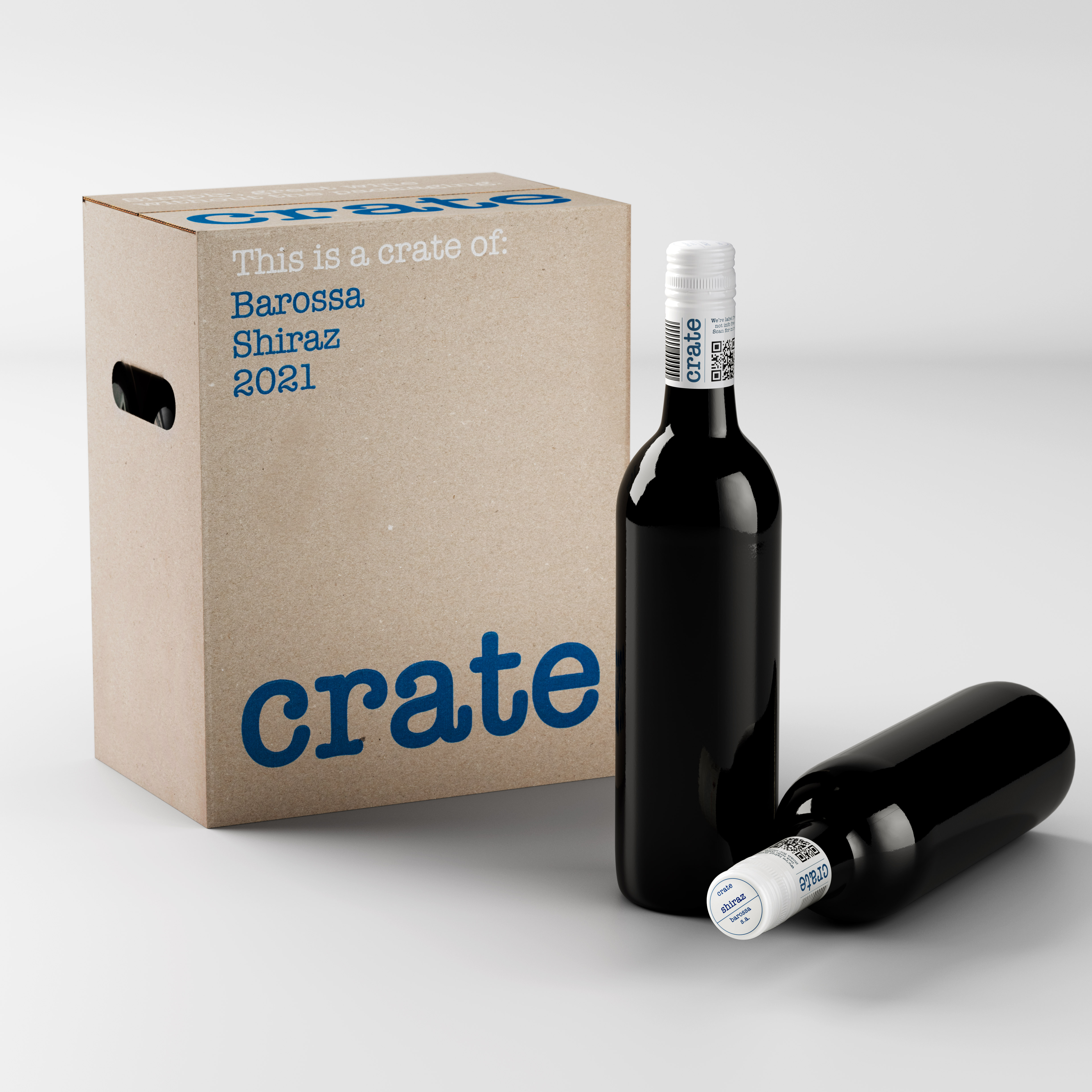17 : 03 : 23 : Weekly Debrief
This week: eBay's first sneaker swap pop-up, sustainable labeless wine from Crate, Spotify's first AI DJ, the future of train design and a new report reveals that social media users demand more protection.
1. Ebay to host sneaker swap pop-up in London
UK – Online marketplace eBay has announced it is opening a first-of-its-kind pop-up sneaker swap shop in London. The one-day ticketed event will allow sneakerheads to exchange their shoes free of charge.
The pop-up will also include a cleaning service provided by Sneakers ER, an authentication hub where experts will check sneakers, a live DJ set, a bar and a Polaroid photo wall.
‘Swapping has always been intrinsic to us sneakerheads,’ says Wahaaj Shabbir, sneaker category manager at eBay UK. ‘In these tough times where the cost of living is making it harder to buy your next pair, we wanted to offer a solution which feels right to the community.’
The pop-up will open on 25 March. Those who can’t attend in person can purchase swapped sneakers on the eBay Swap ’Em Out marketplace after the event. All funds from the online sales will support the DEC Turkey-Syria Earthquake Appeal.
In our Sneaker Hubs Market, we previously observed that sneaker consumers enjoy gathering and sharing knowledge, tips and ideas within the sneaker community.
2. Crate propels sustainable packaging to next level with label-less wine
Australia – Fourth Wave Wine is taking sustainable packaging to the next level by launching Crate, one of the world’s first label-less wines. Designed by drinks branding specialist Denomination, Crate upholds the high quality of its barrel-matured red wine while stripping away any unsustainable branding materials. There’s no label printing, adhesives or paper usage, so less energy is spent on the bottling line. The Australian family-owned importer of wines also limits Crate to a case-only purchase option, shipped in 100% recycled cartons with minimal print.
All relevant information can still be found on the bottle's capsule containing brand logotype, varietal, region, vintage, brand messaging and a QR code for further legal information. The design works with other regenerative elements, including the bottle of transition glass and 100% recycled cartons with minimal print. ‘Fourth Wave Wine is constantly striving towards greater sustainability, and the launch of Crate is shining a light on alternatives to conventional paper-label packaging, an increasingly precious commodity,’ says Nicholas Crampton, co-owner of Fourth Wave Wine.
 Crate by Fourth Wave Wine. Identity by Denomination, Australia
Crate by Fourth Wave Wine. Identity by Denomination, Australia
3. Introducing Spotify’s first AI DJ
US – On 22 February Spotify officially introduced its own artificial intelligence DJ generating playlists and radio-inspired transitions to its premium subscribers in the US and Canada. Inspired by the success of Discover Weekly, a playlist that feeds users’ recommendations based on their listening activity, and the annual Spotify Wrapped, the AI DJ will curate tunes and offer recommendations based on the user's data.
As well as announcing the next song, the AI DJ will share personalised anecdotes, such as ‘Up next, I went back for some of your old summertime favourites', or timely topics related to the playing song. The company’s personalisation technology, an AI text-to-speech engine, OpenAI, recorded sessions with the head of cultural partnerships, Xavier X Jernigan, to capture his tone of voice and emotions, and a writers' room made this possible.
In Connective Audio, we previously highlighted how consumers turn to aural online spaces to compensate for the lack of in-person interactions in a hyper-connected world. As Spotify’s AI DJ knows so much about each user, it hints at a new socialising experience generated by machine learning.
 Journey Beyond’s Gold Service. Design by Woods Bagot, Australia
Journey Beyond’s Gold Service. Design by Woods Bagot, Australia
4. Woods Bagot designs new futures for trains
Australia – Experiential tourism company Journey Beyond has commissioned architectural firm Woods Bagot to scale up its transcontinental rail service. Journey Beyond is investing more than £5.5m (A$10m, $6.7m, €6.2m) to upgrade its trains, starting with The Ghan, which runs between Adelaide and Darwin, a journey of almost 3,000km.
Woods Bagot’s new renderings usher in a new level of sophistication and elegance in train interiors and feature a palette of colours inspired by the landscape artist Albert Namatjira, one of Australia’s most renowned Indigenous painters. Updated elements will include bespoke fixtures and fittings in the guest cabins and newly designed Outback Explorer Lounges, with leather banquettes, swivel chairs and a stone-clad bar. The firm will also revamp the onboard Queen Adelaide Restaurant with a focus on highlighting the rich landscape of Australia represented through collaborations with First Nations artists.
As consumers become increasingly critical of the aviation industry and its impact on global carbon emissions, the resurgence of train travel – along with a demand for its upgrade – will play an essential role in the travel, hospitality and luxury industries, as we revealed in our Rail Travel Re-Ignited market report.
5. Stat: Social media users demand more protection from big tech
Global – In a new report forecasting the future of digital engagement, hand-made cosmetics firm Lush and The Future Laboratory reveal that 49% of consumers believe social media platforms do not do enough to protect users from harassment, harm and manipulation.
Following a survey of 12,000 social media consumers across the UK, the US and Japan to understand their digital wants, needs and desires, the report concluded that social media platforms face new challenges as people engage less with them. Over a third of Meta users say they have used Facebook, Messenger (17%), and Instagram (18%) less frequently than a year ago. Perhaps their desertion is due to their lack of trust in the platforms’ owners. ‘The promise of social media was connection, expression and community,’ says Jack Constantine, the chief digital officer at Lush. ‘But today, many consumers distrust social media platforms. Some even experience digital platforms as a hostile space. Our research alarmingly shows this.’
In Anti-provocation Platforms, we previously looked at how consumers who burnt out on traditional social media spaces can now access a new wave of platforms featuring common good values in their functionality.
To future-proof your world, visit The Future Laboratory's forecasting platform LS:N Global for daily news, opinions, trends, sector specific insights, and strategic toolkits.
Want to read more?
Become a member today!
Sign up to one of our trends intelligence platform, LS:N Global and get unlimited access to a hive of insights - from microtrends and macro trends to market reports, daily news, research across eight industry sectors and much more.
Discover our memberships
Already a member? Click here to login
